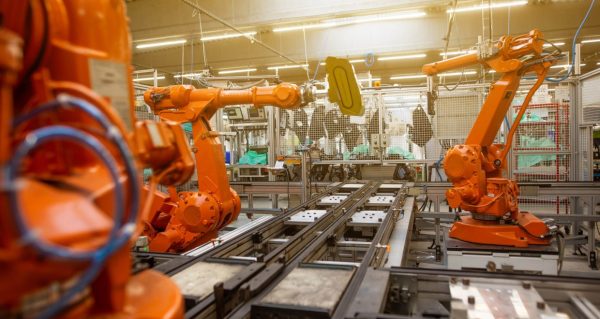Technology and Development
A life in engineering: Prof. Jan Maciejowski talks to the Institute of Measurement and Control (InstMC)
Technology and Development
A life in engineering: Prof. Jan Maciejowski talks to the Institute of Measurement and Control (InstMC)
Jan Maciejowski, InstMC Past President and Professor Emeritus of Control Engineering, University of Cambridge, gives an interview with Precision Magazine(Opens in a new window) and provides an insight into his career in engineering.
What was the root of your interest in Engineering?
That definitely came from my dad. He was an electrical engineer, working on mobile communications. In the 1950s and 1960s that field looked very different from smart phones and tablets. It was concerned with mobile transmitters and receivers, as used by the military and emergency services – including the RNLI and the AA.
We would sometimes have a piece of kit on test in the family car for a couple of weeks. I was fascinated by the kit itself, by circuit diagrams, and best of all occasionally going into the factory on a Saturday morning (Health & Safety wouldn’t allow that these days). I still love the smell of a machine shop, or of solder on an electronics bench.
So, from the age of maybe 9 or 10 I wanted to be an engineer. I would sometimes change my mind temporarily – fighter pilot, bus driver, fireman, even priest briefly – but I always came back to engineering. When I was about 14 my dad started bringing home issues of “Control Engineering”. These were being sent to his work for some reason, and nobody there was particularly interested in them. I read them – they were not too technical – and I became fascinated by the subject.
It wasn’t all process control, control of spacecraft also figured quite a lot, that being the time of the Mercury missions, and a bit later Apollo. The upshot was that when it came time to go to university, I knew that I wanted to study Control Engineering.
That made the choice of institution easier, as there were only 5 such undergraduate courses in the UK at that time: Manchester, Sussex, Warwick, Bangor and Sheffield, I think. I was advised not to go to Manchester because I had bad asthma at that time, and Manchester was still a badly polluted city in 1968. So, I went to the University of Sussex instead.
It had a pioneering course (which I only realised much later), with all scientists, mathematicians and engineers doing the same first year courses (mostly), all engineers doing the same second year courses, and specialisation only in the third year. I also met my wife Mara in Brighton while I was there.
What is your vision of Engineering in Britain for the next ten years?
I wish I could be more optimistic about it than I am. But let’s do ‘vision’ rather than ‘prediction’. The biggest problem facing us all is climate change, and it is more urgent than most of us admit.
I am one of those who believe that mitigating climate change could be, and should be, a major driver of the economy – not only our economy, but the global economy. Switching away from our current dependence on carbon, whether it is to renewables, to hydrogen, to nuclear, or most likely to some combination of these, and doing so quickly enough, will require tremendous innovation in all walks of life, and Engineering must inevitably play a very large role in that innovation.
This must happen everywhere, of course. But I believe that Britain could be a major player in this. We are good at invention, though not so good at follow-through to innovation, we punch well above our weight in fundamental and applied science, and we are good – though patchy – in Engineering.
This is a good foundation, but we need to raise our game to eliminate, or at least reduce, the weak points, and I hope that we can do that by turning the threat of climate change disaster into a stimulus to action. I am encouraged by the government’s recently announced ambition to raise the spend on R&D to 2.4% of GDP by 2027 (though I note that the OECD average is already 2.6%!) but creative, consistent and wise policy will be needed to spend that money effectively.
Measurement and Control Engineering will really be an enabling technology for climate change mitigation. From apparently simple – yet woefully badly done – things like controlling our domestic temperatures efficiently, to fancy stuff like controlling electric power networks with massive penetration of local renewable energy sources, measurement and control are going to be needed everywhere. I am sure that machine learning will have a big impact when combined with our ‘traditional’ methods – look at the recent success of DeepMind in controlling the plasma in a fusion reactor, for example.
What should the UK government do to address the shortage of UK engineers?
Education. Specifically, improve science and maths teaching in schools to make them more interesting, and don’t force kids to specialise too early.
But that is long-term – at least 10 years to get delivery from the ‘pipeline’. In the short term, recruit the best internationally, like the USA does, and greatly increase ‘continuing education’, so that adults can retrain to meet some of the demand.
I have recently been involved in continuing education, working with The University of Cambridge on their new programme of online learning: Cambridge Advance Online (CAO). We have created a Control Engineering course that is endorsed by the InstMC and designed for graduate engineers who find themselves working on control systems and needing to learn about them.
It is quite an intense 8-week course, with about 8 hours of work needed per week. The course assumes that you know very little about control to start with, works through basics such as PID control, and reaches advanced material such as optimal control and Kalman filters. There is maths involved, but we use software to do all the calculations.
CAO have several other courses, in areas such as ProductTechnology Roadmapping and Bionanotechnology. I believe that the provision of such courses can have a significant impact on the shortage of engineers, once engineers and their employers become more aware of them.
What do you do in your free time to relax?
Well, I’m retired, so it’s all ‘free time’ except when I’m engaged on a project such as writing a course. I like sailing, but I have become more prone to seasickness in recent years, so now it’s gentle sailing in the Norfolk Broads and the like. When the Covid pandemic started, four of us formed an online book club. We have now progressed to in-person meetings, at which books are not the only things that are consumed.
Our wives didn’t believe that an all-male book club would survive, but we have read about 35 books so far since early 2020 and are still going strong. I also like learning languages and am currently learning (modern) Greek – fairly useless in Greece, because they all seem to speak excellent English. Keeping fit and healthy is an increasing preoccupation with age, which I try to do by cycling and swimming.
Given one wish what would that be?
That we had no wars, civil or any other kind.
Jan Maciejowski is the course lead for Cambridge Advance Online(Opens in a new window)‘s Control Engineering, a 8-week online course from the University of Cambridge.


